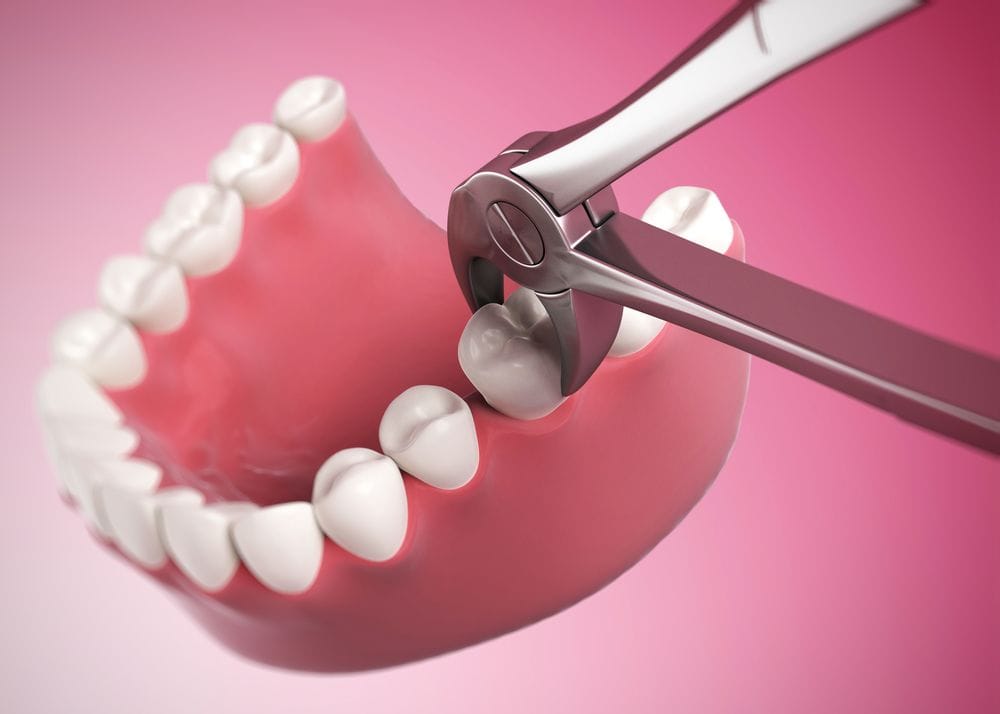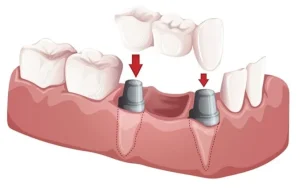Wisdom teeth — formally known as third molars — often cause problems. Many people in their late teens or early twenties experience discomfort, infections, or even damage to neighboring teeth because of wisdom teeth. In Indianapolis, dental clinics like Olive Branch Dental handle wisdom tooth extraction routinely with care, comfort, and expertise. If you’re considering extraction, here is everything you should know: when it’s necessary, what to expect, how the procedure works, and how to recover well.
When Is Wisdom Tooth Extraction Needed?
There are several reasons why a dentist may recommend removing wisdom teeth, including:
-
Impaction: The tooth has not fully emerged from the gums, or it is misaligned, pushing against adjacent teeth or growing at the wrong angle. This can lead to pain, swelling, or even cyst formation.
-
Crowding: If the jaw doesn’t have enough room for wisdom teeth, they can crowd nearby teeth, undoing orthodontic work, or causing shifting.
-
Infection or Gum Problems: Partially erupted wisdom teeth can create pockets where bacteria accumulate, leading to periodontal disease or recurrent infections.
-
Decay: Because wisdom teeth are far back, they’re harder to clean properly. This raises the risk of cavities.
-
Orthodontic/Structural Issues: Sometimes removal is needed to make space for other treatments, or to alleviate pressure on the jaw.
If you’re experiencing symptoms such as pain at the back of the jaw, swelling, difficulty opening your mouth, or recurring infections, it may be time to consult your dentist in Indianapolis.
How Olive Branch Dental Handles Extractions
At Olive Branch Dental, extractions (including wisdom teeth) are part of the services offered. The team is equipped to assess whether a wisdom tooth needs removal and to perform the procedure when necessary.
Here’s what the extraction process looks like:
-
Evaluation
Your dentist will take a thorough history — including symptoms, x-rays, possibly 3D imaging (cone beam CT if needed) to determine the position of wisdom teeth and how they relate to nerves and other structures. The evaluation helps determine whether extraction is simple or more complex. -
Sedation / Anesthesia Options
Before removing the tooth, you’ll discuss sedation or anesthesia preferences. You may have local anesthesia (numb the area), possibly nitrous oxide (“laughing gas”), or other sedation to keep you comfortable. Olive Branch Dental offers sedation options to make the procedure more tolerable. -
Extraction Procedure
For teeth that have fully erupted, extraction may be relatively straightforward: the tooth is loosened by expanding the socket and detaching the ligament holding the tooth in place. For impacted wisdom teeth, more surgical steps may be needed — this could include trimming bone, cutting the tooth into pieces, or making small incisions in gum tissue. The skill of the dentist and the complexity of the impaction affect how long and how involved the procedure is. -
Post-Extraction Care
Once the tooth is removed, the socket is cleaned, the site closed if necessary (sutures may be used), and instructions are given for healing. Replacement of the extracted tooth may come into discussion if the missing tooth could affect chewing, neighboring teeth, or jaw alignment in the future.
What to Expect During Healing
Recovery after wisdom tooth extraction is a crucial part of the process. Here are things to watch for, and tips to help heal well:
-
Swelling & Pain: Some swelling, discomfort, and possibly bruising are normal, especially in the first 24-48 hours. Dentists will prescribe or suggest pain management—typically over-the-counter or, where appropriate, prescription medication.
-
Bleeding: Slight bleeding or oozing from the site is common for a few hours. Biting gently on gauze helps. Keeping your head elevated and avoiding strenuous activity reduces bleeding.
-
Diet: Start with soft foods like soups, yogurt, smoothies; avoid crunchy, hard, or sticky foods for several days to avoid disturbing the healing site. Keep hydrated but avoid hot and very spicy items immediately after surgery.
-
Oral Hygiene: Gentle rinsing with mild salt water or as directed helps prevent infection. Avoid brushing directly over the extraction site until it begins to heal, but maintain hygiene elsewhere in the mouth.
-
Follow-up Care: You’ll likely have follow-up visits to check healing, remove sutures (if non-dissolving), and ensure there’s no infection or complications.
Risks & What to Discuss With Your Dentist
While extraction is common and generally safe, there are risks to be aware of:
-
Dry Socket: A painful condition in which the blood clot dislodges from the extraction site.
-
Nerve Injury: Especially for lower wisdom teeth, there’s a possibility of temporary (or rarely permanent) nerve damage affecting lips, tongue, or chin.
-
Infection: The surgical site can get infected, particularly if hygiene or care instructions aren’t followed.
-
Sinus Issues: In upper wisdom teeth, there may be proximity to sinuses; removal could affect that area.
Before surgery, make sure to discuss with your dentist your medical history, allergies, existing health conditions (e.g. diabetes), and any medications you’re taking.
Cost, Insurance, and Choosing a Dentist
In Indianapolis, costs of wisdom tooth extraction vary based on complexity — whether teeth are impacted, location (upper vs lower jaw), anesthesia type, and whether you’re seeing a specialist or general dentist. Many dentists accept insurance; Olive Branch Dental states that they accept many plans and offer affordable and high-quality care.
When choosing where to have wisdom teeth removed, consider:
-
The expertise of the dentist (especially in oral surgery or extractions)
-
Sedation or anesthesia options and how comfortable you feel discussing them
-
The facility’s equipment (imaging, sterilization, emergency support)
-
Patient reviews or recommendations, particularly about comfort, pain control, and follow-ups
Why Choose Olive Branch Dental in Indianapolis
Here are some specific strengths of Olive Branch Dental:
-
They offer extractions, including wisdom teeth as part of their dental services.
-
Sedation and patient comfort are prioritized—talk through your preferences beforehand so your care plan matches your anxiety level and needs.
-
They provide diagnostic imaging to carefully evaluate the tooth’s position before extraction. This helps reduce risks and plan for more complex removals.
-
They also recognize that replacing a tooth, when necessary, helps maintain function and alignment after extraction.
Conclusion
Wisdom tooth extraction is a routine but important procedure that, when done correctly, can relieve discomfort, prevent future dental issues, and promote long-term oral health. If you live in Indianapolis and are considering extraction, especially for wisdom teeth, Olive Branch Dental offers the expertise, comfort, and aftercare you’ll need. Being informed and following recommendations before, during, and after the procedure sets the stage for a smoother healing process. If you’re in pain, noticing swelling, crowding, or suspect something’s wrong, don’t delay seeking an evaluation—the sooner the issue is addressed, the better the outcome.







